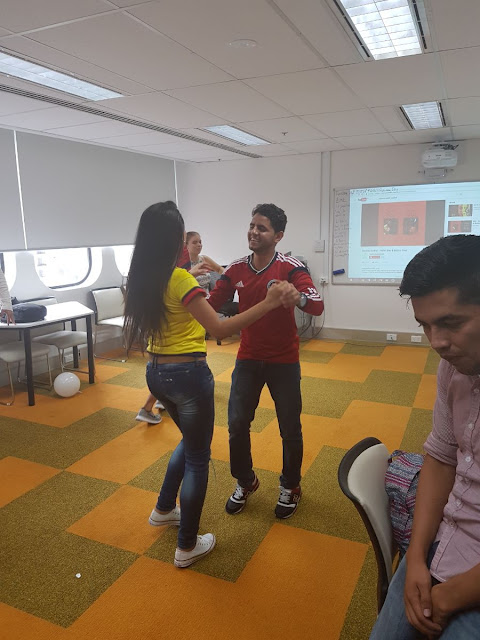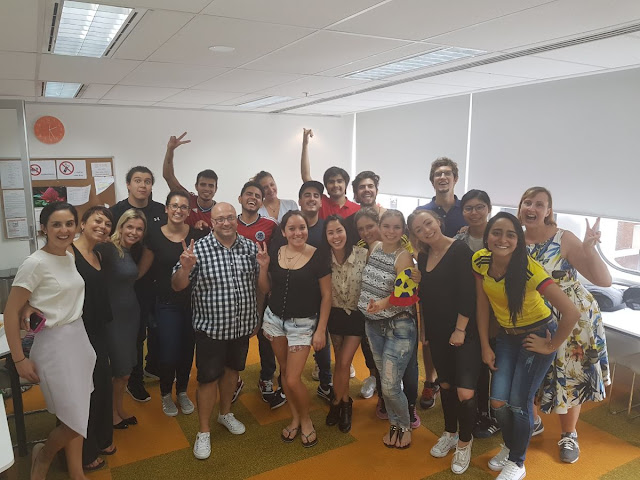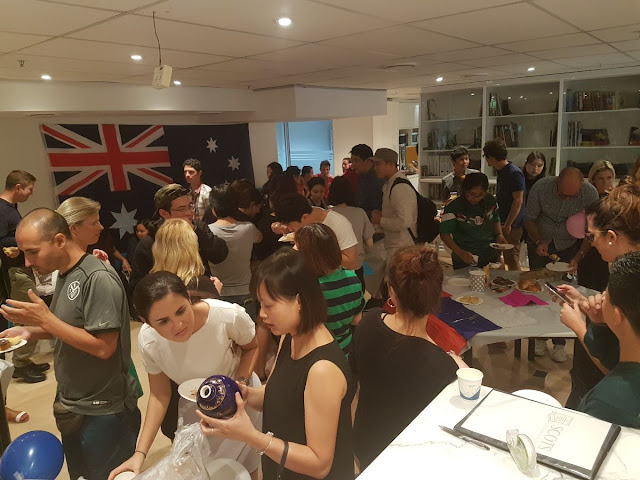 |
| Photo credit: Creative Vision for Women |
Do you know why March 8th was chosen as the International Women’s Day? Is there actually an International Men’s Day? Take a look at this post to find out some interesting facts about International Women's Day!1. International Women’s Day (IDW) is held on March 8th each year. IDW goes back to 1908, when 15,000 women marched through New York to demand better pay and the right to vote. Still, IWD wasn't officially recognised until 1911, making this year the 106 year anniversary of International Women's Day. The first modern IWD was held in 1914, four years after its being recognised. March 8th, 1914 was chosen because it was a Sunday, a day-off for most women and thus them being able to participate in marches and other events.
2. IWD is a worldwide event that celebrates women and their achievements. This is a time to reflect on what we need to do to help create a fairer, more equal world.
 |
| Photo credit: The Inclusion Solution |
3. Over 800,000 women served in the Soviet armed forces in World War II.
4. There is actually an International Men’s Day. It is on November 19th each year and celebrated in over 70 countries. Calls for a day for men started from at least the 1960’s when the New York Times reported “Many men have been agitating privately to make February 23 International Men’s Day, the equivalent of March 8th, which is International Women’s day.” The International Men’s Day focuses on men’s health, improving gender relations, increasing gender equality and celebrating positive male achievements and contributions.
5. IWD’s theme for 2017 is #BeBoldForChange. Being bold for change means continuing development of a fair world and not staying silent.
6. There are many incredible inventions by women. These include car heaters, dishwashers, fire escapes, circular saws, chocolate chip cookies, rectangular bottomed paper bags, coffee filters, water heaters, windshield wipers to name a few.
 |
| Ida Forbes invented the water heater in 1917. Photo credit: Maker Pink |
7. In the 19th century, doctors induced orgasms to treat hysteria in women. This is how the vibrator was invented.
8. Though recently there are a dominating number of male employees working in programming and technical jobs, it was women who pioneered computer programming.
9. There were 22 female leaders in 2016, representing about 7% of all political leaders in the world. For example, Angela Merkel as German Chancellor since 2006, Sheikh Hasina as Prime Minister of Bangladesh from 1996 to 2001 and since 2009 and Queen Elisabeth II has been Queen of the United Kingdom since 1952, to name a few.
10. High heels were orignially worn by men around the 1600s as a signal of status. The logic was that only those who didn’t have to work could go around in high heels. Women started wearing them to look more masculine, promoting gender equality.
 |
| High heels were originally worn by men around the 1600s as a signal of status. Photo credit: Quartz |
11. Women’s hearts beat faster than men’s to make up for its smaller size. Averagely, the heart beat of an adult woman is about 78 beats per minutes, which is 8 beats faster than the heart rate of an adult male.
12. Women were first allowed to take part in the Olympic Games in 1900.
13. Studies find that women are better multitaskers than men. That is because men need to mobilise additional areas of their brain and use more energy than women when switching attention between different tasks.
14. Women live longer than men partly because of their stronger immune systems.
15. A study reveals men tell 42 lies a week, twice as often as women.
16. In the 1920’s and early 1930’s, most Hollywood screenwriters were women. Some most famous lady scribes were Frances Marion with ‘Mary Pickford’, Anita Loos with ‘Gentlemen Prefer Blondes’, Jeanie MacPherson with ‘Cecil B. Demille’.
17. Countries around the world have different ways to celebrate 2017 International Women’s Day. In the U.S., women will go on ‘A Day Without A Woman’ strike. In Argentina, this day is associated with giving flowers and gifts. This year activists will also join in the international strike. Irish women will mark the day with a strike against the 8th amendment of the Irish Constitution, which bans abortion. British women will wear red, plan demonstrations against gender bias in the art world. Women in Italy will enjoy free entry to the museums and cultural sites in the country. IWD is a national day in Russia when women are given flowers, gifts and a day to call their own.
Last words...
Dear female students,
Today is the International Women’s Day. This day belongs to you. All best wishes from
Scots English College. Keep shining and smiling always.





























































